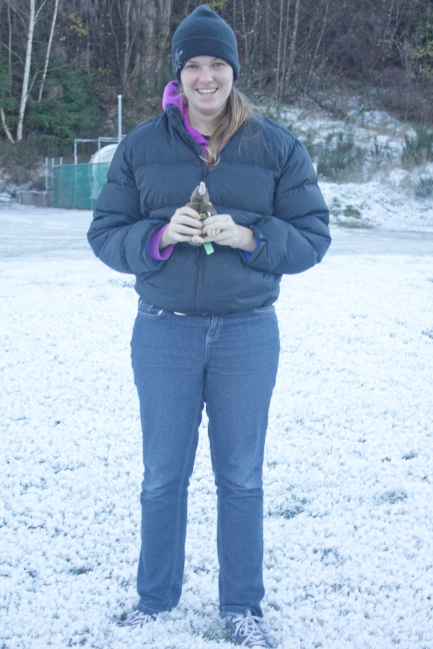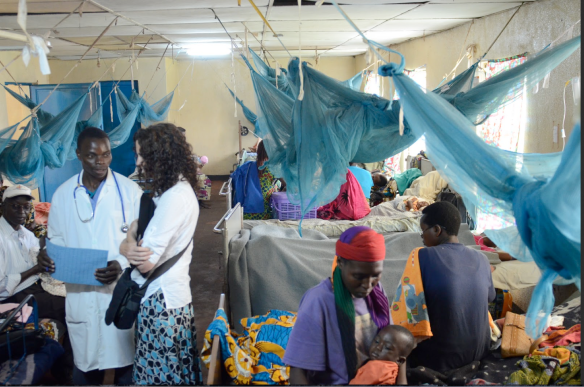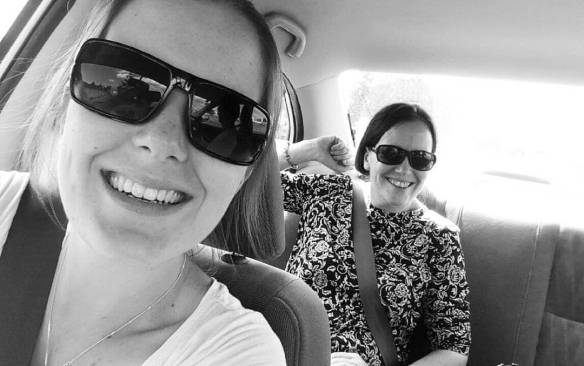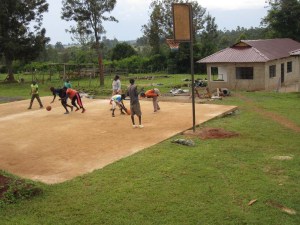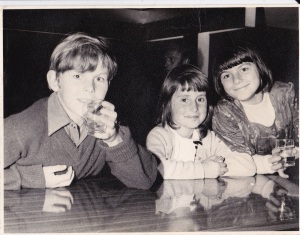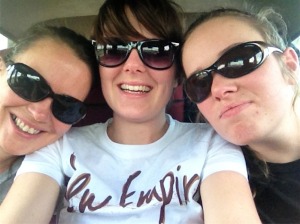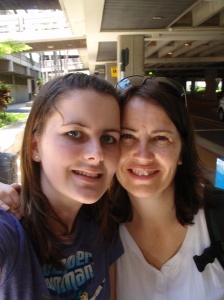When we moved to Kenya we never even had it in our minds that within a few short years we would have a grandchild on the scene. Why you always look forward to it, you’re never quite ready for it. When our daughter Hannah and her husband Luke told us that they were expecting their first baby, we didn’t actually believe them. It’s the type of prank our family would play on each other. So even when we got off the Skype call, we didn’t quite believe it.
But it was true, and in March this year Isabella Rose was born.
I felt very privileged to be there a couple of weeks before she arrived, was there for the birth and for a month afterwards. But then we had to leave to return back to Kenya. We saw Han and Izzy one more time when we were in Australia but after that we weren’t sure when we would see them face to face again.
It could be years.

We are now on a journey of being grandparents from a distance.
It’s a common occurrence in the world we live in for grandparents to be on one side of the world so how do we manage it and still build a relationship with the most precious gifts in the world?
- Don’t feel guilty
It’s hard not to be there for every moment of their lives. You feel bad for not being there for birthdays or Christmas and if you were there they wouldn’t have to go into daycare because you ‘could have’ helped out.
At the end of the day, you’ve got to realize that even if you moved back to the same country as them, they might up and leave to go somewhere else. So are you just going to jetset around the globe following them? You have chosen to live where you are and they where they are.
- Use the internet to your advantage
For us, Skype is one of the best inventions ever. We might only get to use it once a week, but the fact that we can, is the fantastic. I’ve asked Han for a photo or video every day of Izzy, and she’s pretty good at sending it on Facebook. Sometimes it’s a report on how she’s been sleeping, other times on how she’s going with feeding. Even the smallest message makes us feel involved with Izzy. At times I just get on my phone and video myself or put some toys in from of the phone and make up stories for her. This morning I got back from a run and put a 30 second video of me filling in Izzy on what was happening today. It’s no big deal, but it helps with me missing her so much.
- It’s not a competition
It’s hard when your daughter and grand daughter are surrounding by their in-laws who get to enjoy ‘your family’ on a daily basis. When you find out that your grand child has been spoilt with lots and lots of gifts and you can’t do that because you’re a missionary and don’t have money for such luxuries. It’s very easy to get jealous.
But it’s not a competition between them and you. Your grandchildren are not objects. You can’t buy love and the best thing you can do is give them time. Things break, the best investment you can make is time. Let them show you their homework, art, favourite toy and just chatting. Even taking the time for them to sing their favourite song or preparing for a presentation. The fact that you’re making time for them is the most important thing.

- Make the most of holidays
If you can’t get to your grandkids, invest into them and fly them to you. When Izzy was born, I made the decision that I wanted to be back for her first birthday. I have no idea how I will find the money for the ticket, but it’s important to be there. Izzy won’t remember it, but for Hannah, she needs to know that she matters to us. It’s been a difficult journey for her because she hasn’t had her parents around. I’ve got expat friends whose grandkids come at least twice a year to visit them in Kenya. Others fly to their other home each year or meet up with their kids and grandkids in a mutual country for a few weeks.
One of the dangers of volunteering overseas is that when you return to your home country, you need to spend a lot of time fundraising and you don’t spend time with family. On our last trip we said we would take April off and have a break. But, because of school holidays, we actually had to do many presentations during April. However, we still made time for family, which was a first. For Hannah’s birthday and Mothers Day, we made sure we spent it with the kids.
You can’t get time back. Go and make some good memories.
- Learn to celebrate
Look at what you do have and not what you don’t. Make the most of birthdays and Christmas, not just with a card or gift, but with the phone calls and messages on social networks. I’m keeping every video and photo that Han is sending through for a project for Izzy’s first birthday. I’ve also got some creative ideas for gifts for Christmas. We’ve sent clothes through but judging sizes is always a hard thing. Sometimes we’ve ordered books online that our kids grew up with and sent them through. Because we live far from them, when I’ve returned, I’ve taken the toys that Han had when she was little. That way if anything untoward happened to us, at least she has memories of us. My grandmother gave me a porcelain love heart when I was small, so when Izzy was born, I gave that to her. It might not seem much right now, but I have nothing left from my mother, so it’s nice to leave something small with Izzy.
What have been some of your experiences of grand parenting from a distance?





